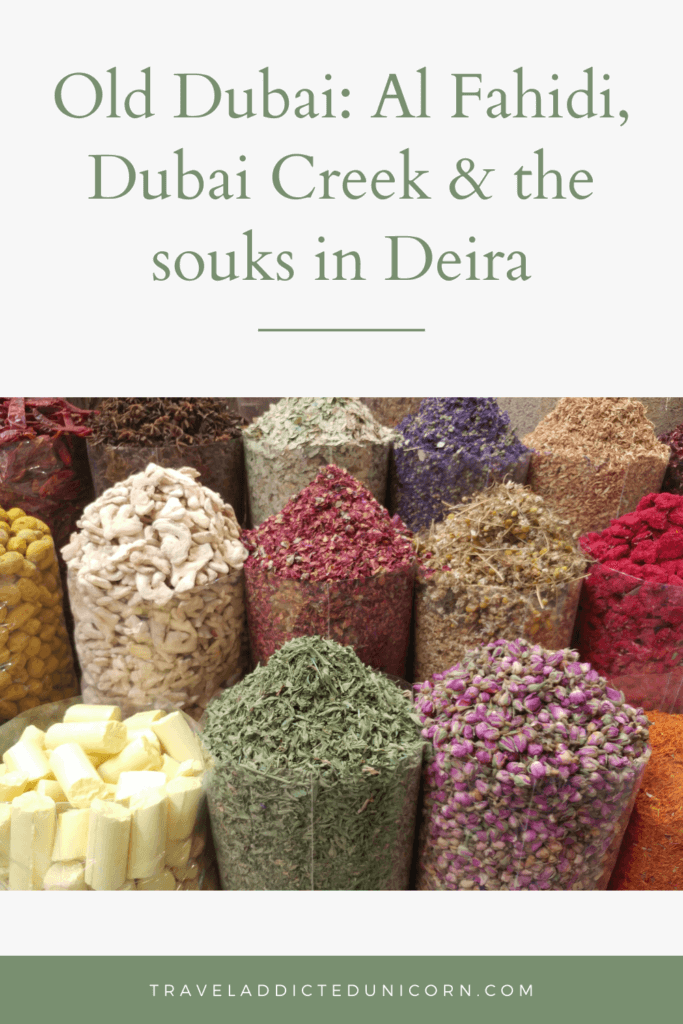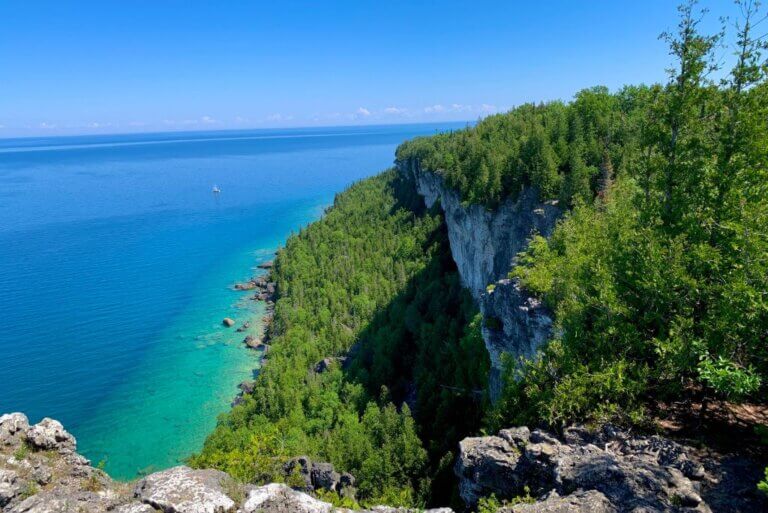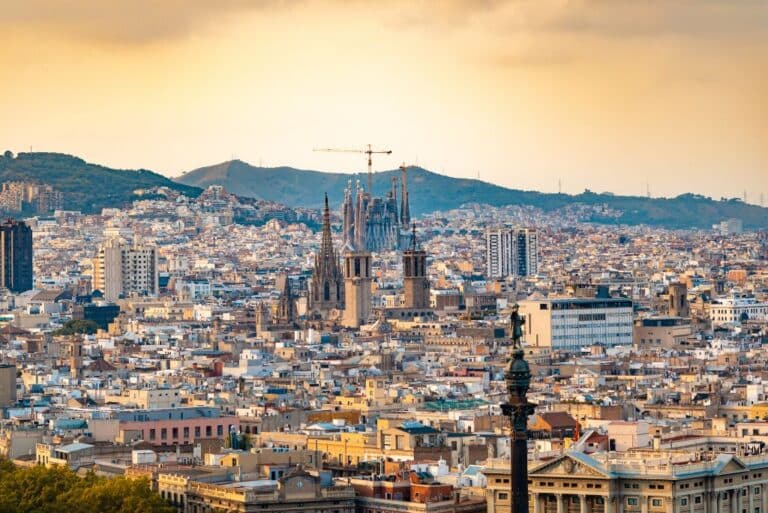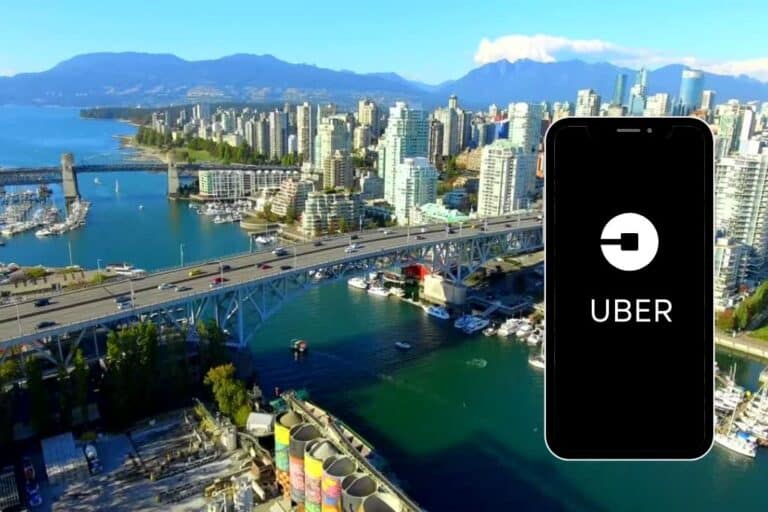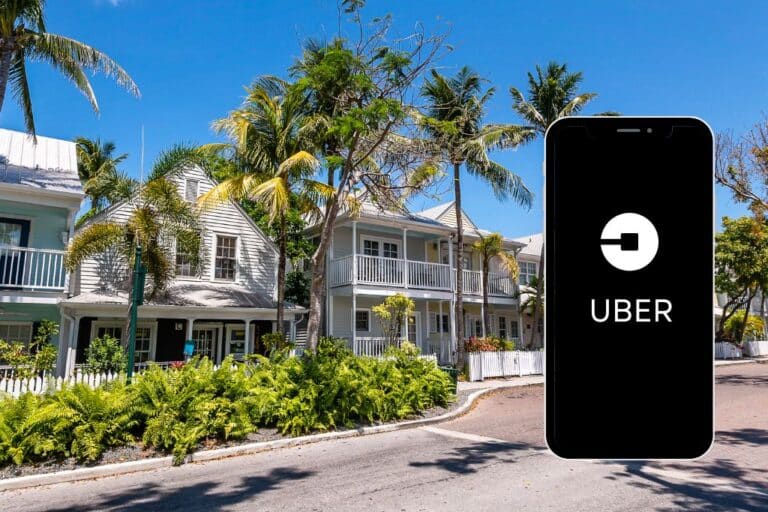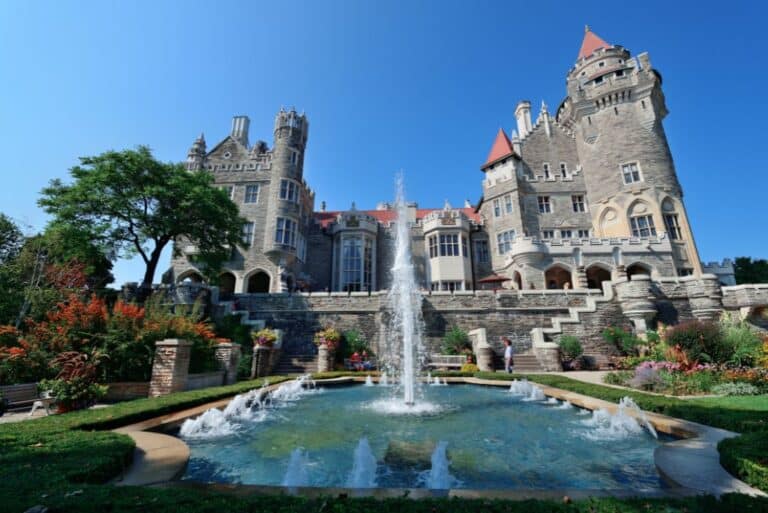Old Dubai: Al Fahidi, Dubai Creek & The Souks In Deira


Planning A Trip To Dubai And Wanting To Visit Old Dubai – Al Fahidi, Dubai Creek & The Souks In Deira? We’ve Got You Covered!
“Old Dubai: Al Fahidi, Dubai Creek & The Souks In Deira” was updated in 2025″.
When we think of Dubai, images of towering skyscrapers, luxurious shopping malls, and cutting-edge architecture often come to mind.
However, nestled amidst this modern metropolis lies a treasure trove of history and culture waiting to be discovered.
Old Dubai, with its charming neighborhoods, bustling waterways, and vibrant markets, offers a glimpse into the city’s rich heritage.
In this blog post, we’ll embark on a journey through the historic Al Fahidi district, stroll along the scenic Dubai Creek, and immerse ourselves in the souks in Deira.
Join us as we uncover the timeless charm of Old Dubai, where tradition and modernity coexist in perfect harmony.
Where Is Old Dubai?
Old Dubai is located in the eastern part of the city along Dubai Creek, encompassing the historic neighborhoods of Deira and Bur Dubai.
This area is the cradle of Dubai’s rich history and cultural heritage, offering a stark contrast to the modern skyscrapers and luxury of New Dubai.
To get to Old Dubai take the Green Line to either Al Fahidi or Al Ras Metro Stations.
Al Fahidi station is close to the Al Fahidi Historical Neighborhood and the Textile Souk.
While Al Ras station is near the Gold Souk and Spice Souk in Deira.
🦄 If you want to know more about the Dubai Metro and how it operates, check out this blog post: Complete Dubai Metro Guide

Al Fahidi Historical Neighborhood
Al Fahidi Historical Neighborhood, also known as Al Bastakiya, is one of the oldest heritage sites in Dubai.
Located along Dubai Creek, this district offers a glance into the city’s past, long before the advent of its iconic skyscrapers and sprawling shopping malls.
Established in the late 19th century, Al Fahidi was initially home to wealthy Persian merchants who brought with them their distinctive architectural styles and cultural practices.
Back in the day, it was a busy commercial center, especially for pearl and textile businesses.
🦄 If you are wondering if Dubai is worth the hype, check out this blog post:
Is Dubai Worth Visiting? Things To Do & Reasons To Visit
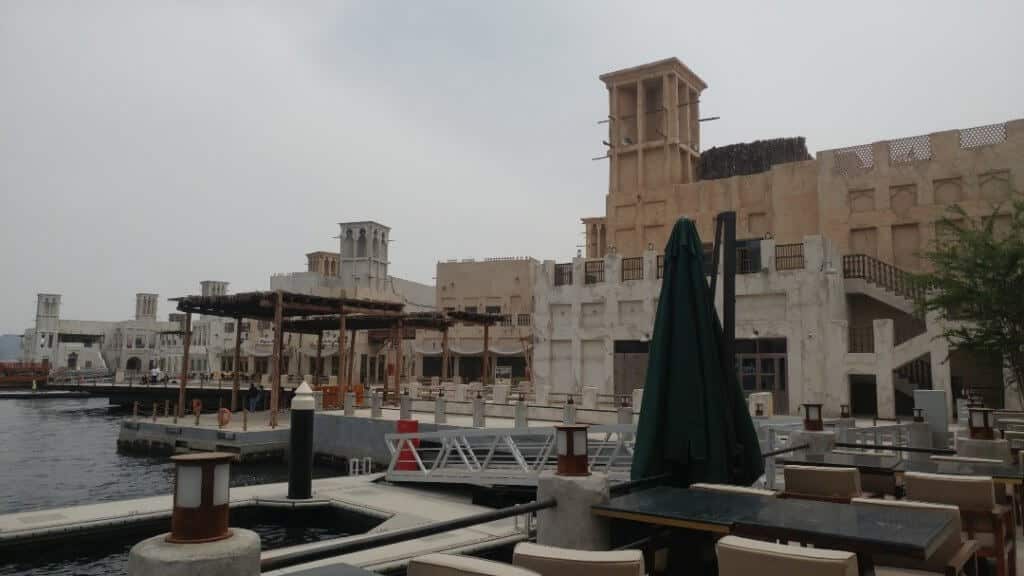
Also, the neighbourhood is characterized by its narrow winding lanes, traditional wind-tower houses (known as barajeel), and courtyards.
The traditional materials used to build the houses are stone, sandalwood, palm wood, etc.
Walking through Al Fahidi, visitors can explore a variety of cultural institutions, including museums, art galleries, and cultural centers.
Which showcase everything from traditional Emirati customs to contemporary art.
👉 If you prefer to do a guided tour of Al Fahidi, book your guided tour here: Al Fahidi Guided Walking Tour with Street Food
Where is Dubai Museum located?
Dubai Museum is located in the Al Fahidi Fort and provides a comprehensive overview of Dubai’s history and cultural heritage.
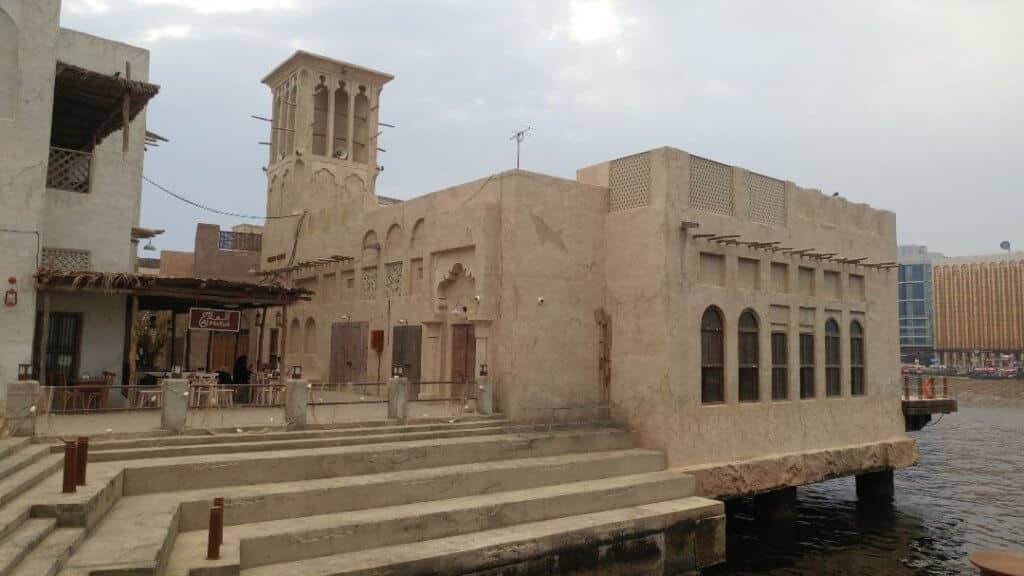
In addition to its architectural charm, Al Fahidi hosts numerous cultural events and festivals throughout the year, making it a vibrant hub for both locals and tourists.
From the annual Sikka Art Fair to the interactive activities at the Sheikh Mohammed Centre for Cultural Understanding, there’s always something to experience in this historic area.
Whether you’re a history enthusiast, an art lover, or simply curious about Dubai’s origins, Al Fahidi Historical Neighborhood offers a unique and enriching experience.
That transports you back to a time when Dubai was a bustling trading port, deeply rooted in its rich traditions and cultural heritage.

How much is the admission fee for Al Fahidi?
Visiting the Al Fahidi Historical Neighborhood is free of charge. There is no admission fee to explore this charming and culturally rich district.
Some specific attractions within the neighborhood, such as Dubai Museum, may charge a small entrance fee, but general access to the Al Fahidi area itself is complimentary.
Along the winding streets of Al Fahidi Historical Neighborhood, you can also find plenty of cute little shops where you can buy souvenirs, scarves, spices, etc.
Not to mention that there are plenty of restaurants that serve traditional food.
The place where we had lunch was called Al Mallah which serves authentic Lebanese food.
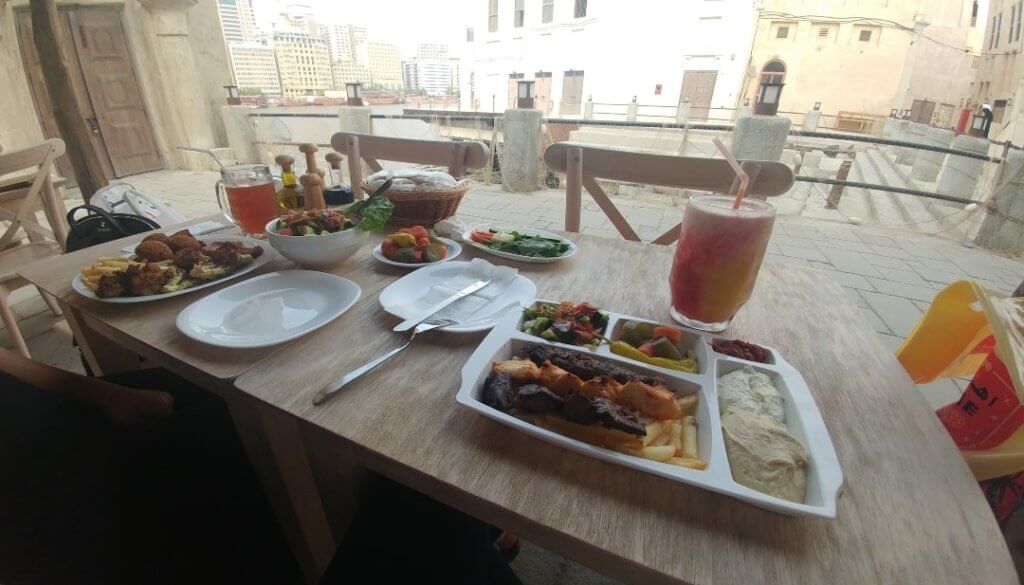
Also, the restaurant is located right beside the water which makes it a perfect place to grab a bite and cool down after exploring the district.
Walking around the whole neighbourhood will take you at least a couple of hours (it is pretty big).
Especially, if you want to shop or have lunch/dinner, you will need at least 2 to 3 hours.
There is no dress code, but like everywhere in the UAE remember to dress modestly.
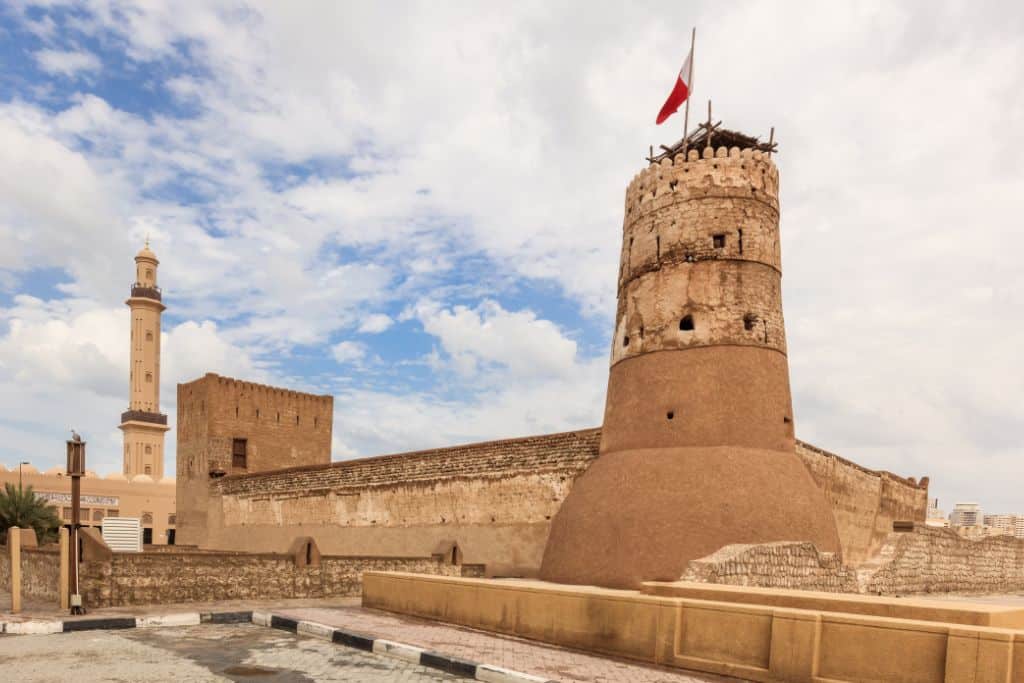
Is Al Fahidi worth visiting?
Al Fahidi Historical Neighborhood is definitely worth visiting if you want to learn about Dubai’s rich cultural heritage, traditional architecture, and get an insight into the early life of the city.
Also, Al Fahidi, Dubai is conveniently located near other historical sites and attractions.
Such as Dubai Creek and the bustling souks of Deira, making it easy to explore multiple aspects of Old Dubai in one trip.
👉 If you prefer to do a guided tour of Al Fahidi, book your guided tour here: Al Fahidi Guided Walking Tour with Street Food
Dubai Creek
Dubai Creek is a natural saltwater creek that divides the city into two halves – Deira (where the souks are – North) and Bur Dubai (where Al Fahidi Historical Neighborhood is – South).
What that means is that if you want to get to the souks, you need to cross Dubai Creek.
And what better way to do that than with a traditional boat called Abra? An Abra is a small, motorized, wooden boat.
You must experience an Abra ride while in Dubai!
How much does the abra ride cost?
Dubai Creek is the cheapest place to do an abra ride!! It costs 1 AED one way!!
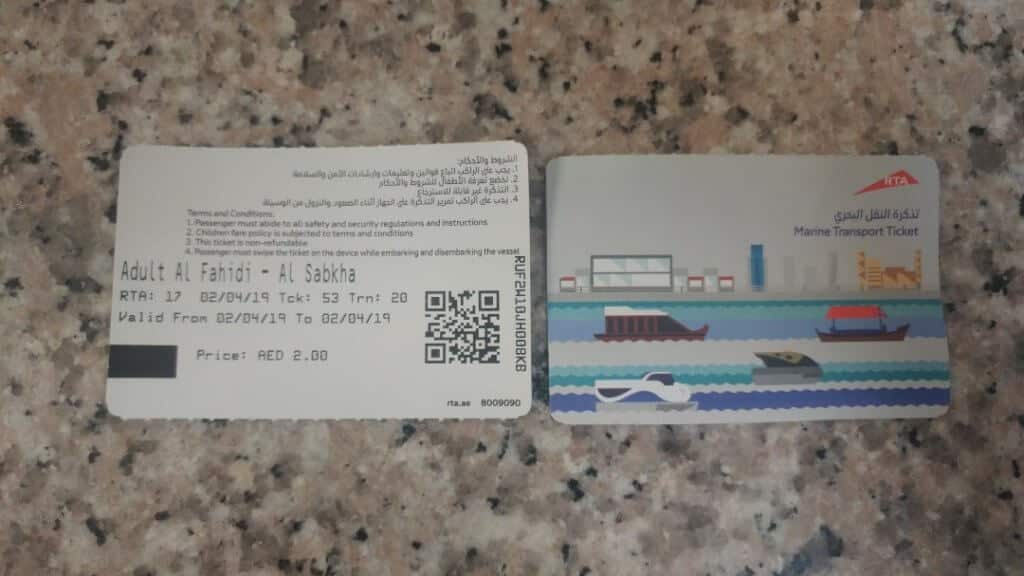
There are two routes and a few different stops on both sides of the creek. We walked around the Al Fahidi Historical Neighborhood and then boarded an Abra and crossed to Deira.
The Abra stop is right outside the entrance to Al Fahidi!! There are no Abra stops within Al Fahidi!!
The boat ride is short, not more than seven to eight minutes.
Check out this video from our Abra overlooking Al Fahidi.
And this video with a view of Deira.
👉 If you prefer to do a guided tour that includes the souks and abra ride, check out this one: Old Town, Souks, Street Food, Guided Tour & Abra Ride
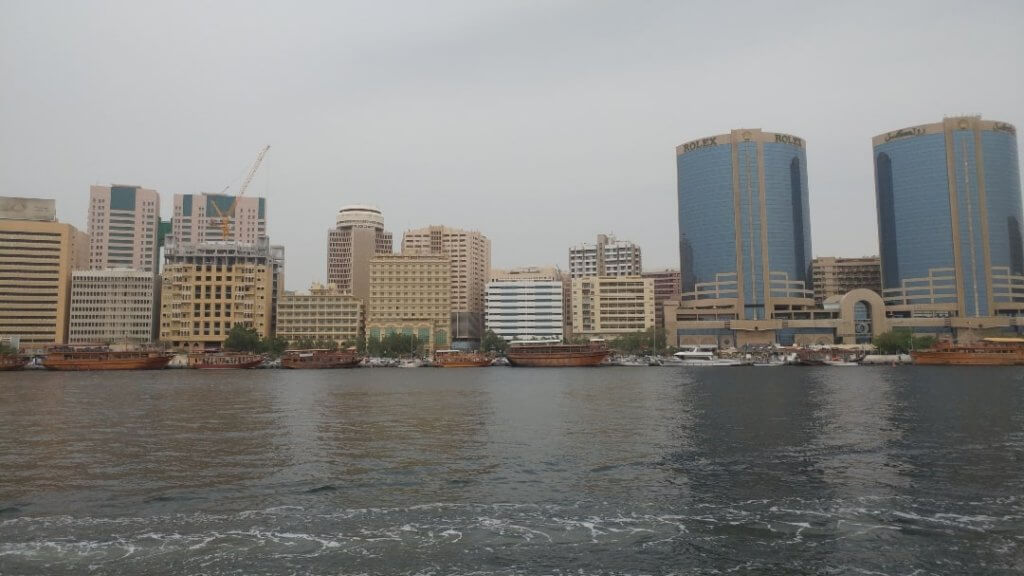
Here is a link where you can find more information on crossing Dubai Creek via Abra boat (there is also a helpful map on the site where you can see the exact routes and stop locations).
The boats are fast, frequent, and super cheap so I highly recommend them.
You can buy the ticket from a ticket booth or directly from the driver. I would bring change to make it easier to pay.
Once you get to Deira, you will need to walk a little bit to get to the souk area.

What is Dubai Creek?
Dubai Creek, known as “Khor Dubai” in Arabic, is a natural saltwater inlet that has played a pivotal role in the history and development of Dubai.
Stretching approximately 14 kilometers from the Arabian Gulf into the city, this waterway has been the lifeline of Dubai.
Shaping its growth from a modest fishing and trading settlement to a bustling modern metropolis.
Dubai Creek has been the center of trade and commerce since the early 20th century.
The creek facilitated trade with neighboring regions, including India and East Africa, and was instrumental in the pearl diving industry.
Which was a major source of income for the area before the discovery of oil.
Can you walk along Dubai Creek?
Yes, you can walk along Dubai Creek, and it’s a wonderful way to experience the area’s rich history, culture, and modern developments.
👉 If you prefer to do a guided tour that includes the souks and abra ride, check out this one: Old Town, Souks, Street Food, Guided Tour & Abra Ride

🦄 Related Dubai blog posts:
Dubai Hidden Gems: 17 Places You Absolutely Must Explore
My Experience Having Dinner In The Sky In Dubai
Dubai Desert Safari: Everything You Need To Know
Dubai: Miracle Garden, Global Village & Dubai Frame
My Experience Skydiving In Dubai
What Are People From Dubai Called?
Dubai: Burj Khalifa, Dubai Mall & Fountain Show
Dubai: Burj Al Arab, Souk Madinat & Palm Jumeirah
10 Things To Know Before Going To Dubai
Deira Souks
Deira is completely different from the fancy downtown area.
The souks transport you into the past with all the wonderful smells and products to buy.
Some of the main souks are Gold, Spices, Perfumes, etc. The Textile Souk is actually located back in Bur Dubai (beside Al Fahidi).
They are a must-visit for anyone looking to experience the vibrant commercial life of Old Dubai.
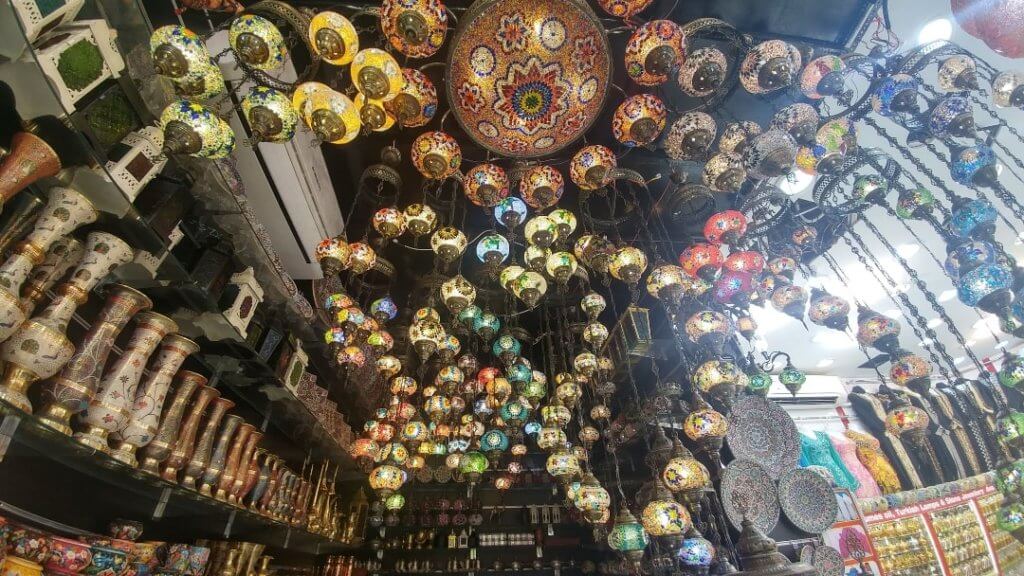
Honest Truth
Now you need to be prepared for this!!
As you walk around, the merchants will see that you are a tourist and they’re constantly going to offer you their products (it is their culture to do that, it is not done in a mean way).
My friend and I were both dressed pretty conservatively in long pants and sleeves and we were still constantly being approached and offered something.
So be ready to have to say no because the merchants are extremely persuasive and they would actually take your hand and drag you to their store.
Eventually, it became too much and we decided to leave.
But like I said I don’t know if it’s because we were two, younger women (no man with us) or because we were tourists but it was too much attention.
If you go with a bigger group or with a male, it might be different.
Having said that, it was definitely worth visiting for the many products, smells, and foods we got to see and try.
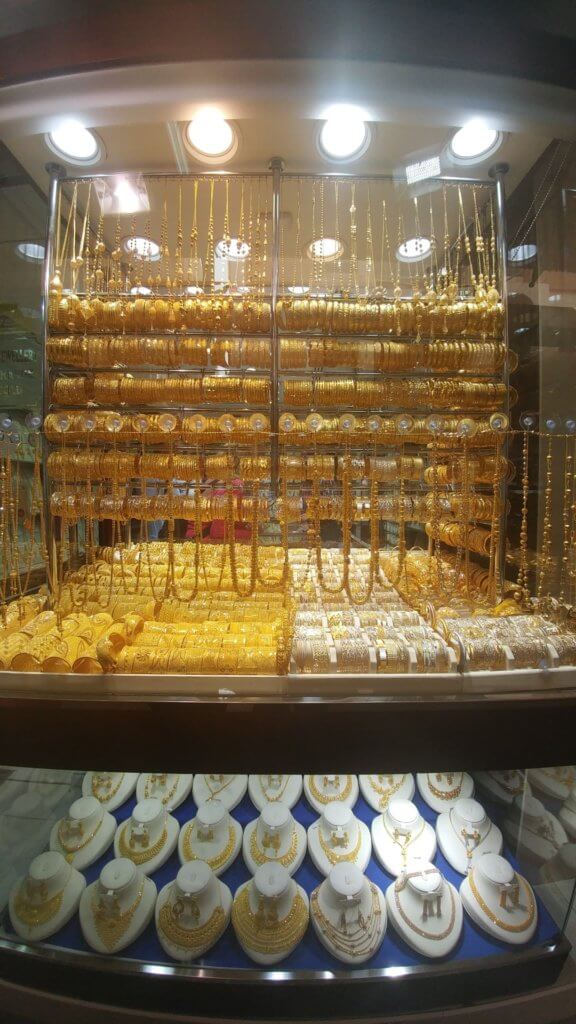
Gold Souk
The Gold Souk is one of the most famous and iconic markets in the city.
Renowned for its dazzling displays of gold and precious jewelry, the souk is a must-visit destination for tourists and residents alike.
The souk features over 380 retailers, offering an extensive range of gold items, from intricate necklaces and bangles to elaborate bridal jewelry and custom-made pieces.
The gold sold here is typically 18, 21, 22, and 24 karats.
In addition to gold, many shops in the souk also sell precious stones, diamonds, platinum, and silver jewelry. You can find everything from sapphires and emeralds to rubies and pearls.
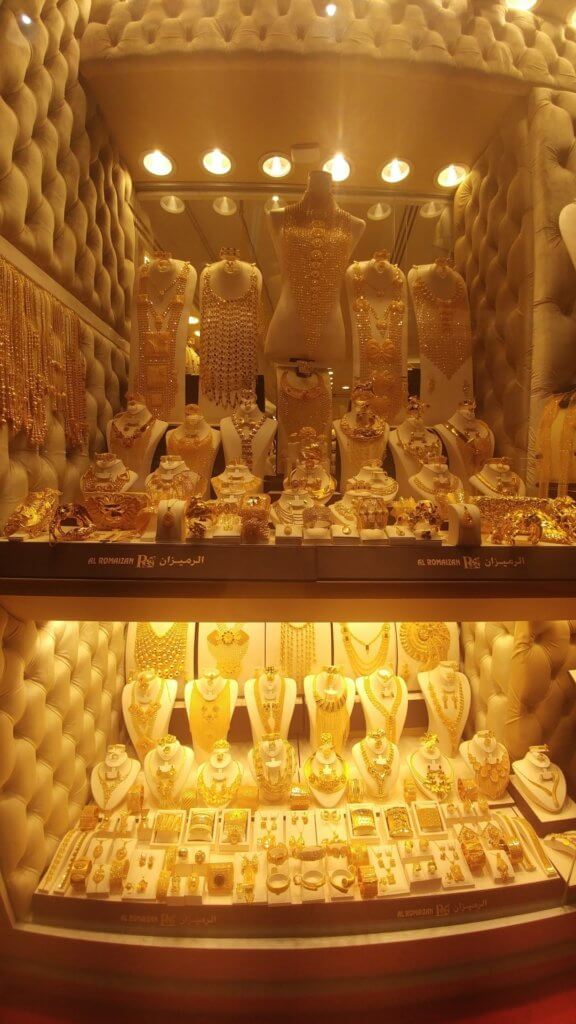
If you’re looking to buy gold, this will be a good place for that because you can barter with the merchants.
Also, they have interesting jewelry items that you cannot find anywhere else.
The Gold Souk is also home to the biggest gold ring in the world (64 kg.) which is located in a store right at the entrance to the souk on the right-hand side.
It’s fun to check it out and see all the gold and stones, but we didn’t end up purchasing anything.
👉 If you prefer to do a guided tour that includes the souks and abra ride, check out this one: Old Town, Souks, Street Food, Guided Tour & Abra Ride
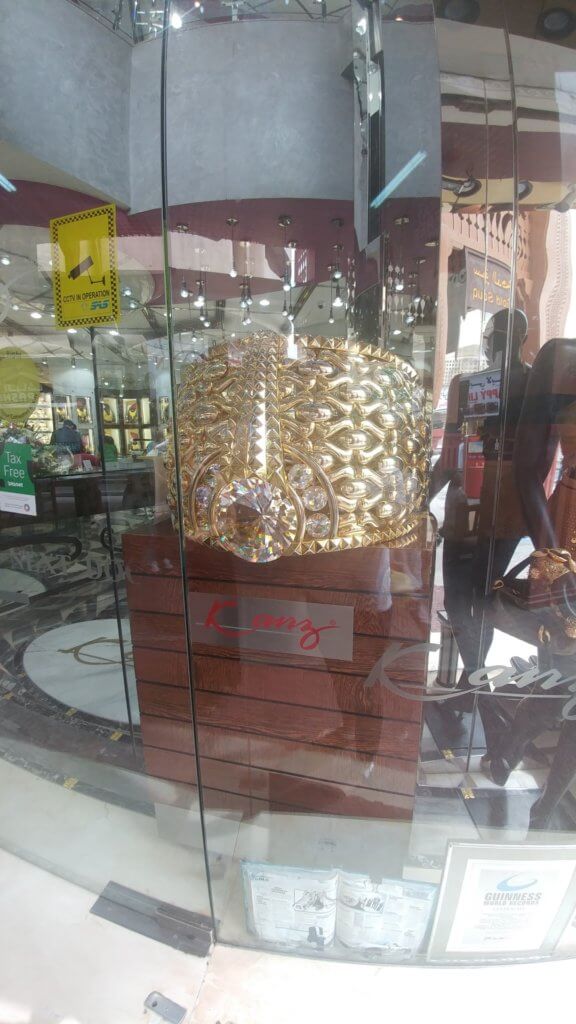
Is gold cheaper in Dubai Gold Souk?
Yes, gold is often cheaper in the Dubai Gold Souk compared to many other places in the world.
Dubai imposes no taxes on gold purchases, which can make gold significantly cheaper compared to countries where taxes and import duties are levied on gold.
The Gold Souk features a high concentration of jewelry shops, leading to fierce competition among vendors.
This competition helps to keep prices lower as sellers strive to offer the best deals to attract customers.
Also, many of the shops in the Gold Souk have lower operational costs compared to large jewelry chains in other countries. These savings are often passed on to customers in the form of lower prices.
Bargaining is a common practice in the Gold Souk. Shoppers can negotiate the price of gold jewelry and other items, potentially lowering the cost further.
In addition, Dubai is a major global hub for gold trading. The high volume of gold traded in the souk contributes to lower prices due to economies of scale.
One thing you would need to consider is that the price of gold in Dubai is linked to the international market rate, which fluctuates daily. It’s wise to check the current market rate before shopping.

Is it safe to buy gold in Dubai Souk?
Yes, it is generally safe to buy gold in the Dubai Gold Souk.
The market is heavily regulated by the Dubai Central Laboratories Department (DCLD).
Which ensures the authenticity and quality of the gold sold.
Vendors in the Gold Souk are required to adhere to strict standards.
Therefore, the gold is frequently inspected to maintain these high levels of quality assurance.
Additionally, most reputable shops provide authenticity certificates for their products, giving buyers further confidence in their purchases.
However, as with any marketplace, it’s wise to exercise due diligence.
Verify the authenticity of the shop, compare prices, and ensure you are well informed about the current market rates before making a purchase.
This will help ensure a safe and satisfactory buying experience.
How much is the entrance to Gold Souk Dubai?
Visiting the Gold Souk in Dubai, as well as the other souks in Deira, is free.
The bustling marketplaces are open to the public and welcome tourists and residents free of charge.

Spice Souk
The Spice Souk is a vibrant and aromatic marketplace that immerses visitors in the rich scents and colors of the Middle East.
This traditional market is a sensory delight, offering an extensive array of spices, herbs, incense, and dried fruits from around the world.
As you wander through the narrow, bustling alleys, you’ll encounter sacks overflowing with saffron, cinnamon, cloves, cardamom, and more, each exuding its unique fragrance.
The souk is not only a shopping destination but a cultural experience.
Where the art of bargaining is still practiced, and vendors share their knowledge of culinary and medicinal uses of their goods.
It is located a little bit south of the Gold Souk but all of the souks are in the same area and it is easy to walk around them.
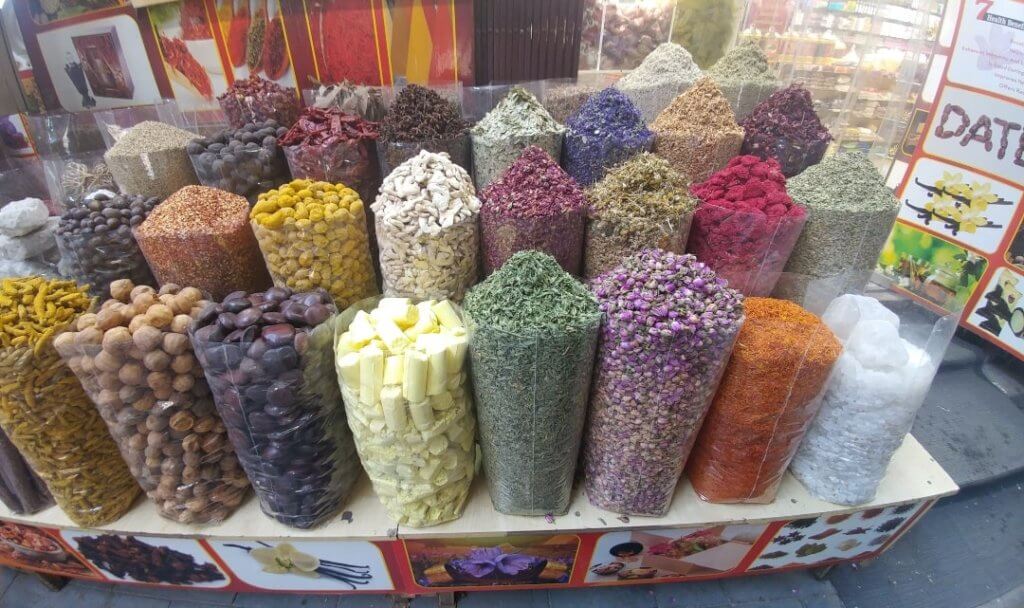
Can you bring spices home from Dubai?
Yes, you can bring spices home from Dubai.
When bringing spices home, it’s important to check the customs regulations of your home country, as some countries have restrictions on the import of certain food items.
Generally, most spices are allowed as long as they are for personal use and properly packaged.
Be sure to declare them at customs if required and keep the original packaging intact to avoid any issues.
Bringing home spices from Dubai not only allows you to savor the rich flavors of the Middle East in your own kitchen but also serves as a wonderful souvenir of your visit.
👉 If you prefer to do a guided tour that includes the souks and abra ride, check out this one: Old Town, Souks, Street Food, Guided Tour & Abra Ride

What are the must buy spices in Dubai?
Top of the list is saffron, prized for its vibrant color and distinctive flavor, often used in dishes like biryani and paella.
If you don’t buy any to take home, make sure you try a meal or a drink that has saffron while in Dubai.
Cardamom, both green and black, is another essential spice, used in everything from aromatic curries to traditional Arabic coffee.
Turmeric and cumin are staples in many regional dishes, adding depth and warmth to food.
Cinnamon and cloves bring sweet and spicy notes, perfect for desserts and savory dishes alike.
Sumac, with its tangy lemony flavor, is great for seasoning salads and meats.
Finally, my favourite, za’atar, which is a fragrant blend of herbs, sesame seeds, and sumac, commonly used to season bread and meats.
These spices not only enhance your culinary creations but also make wonderful, aromatic souvenirs from your trip to Dubai.
We bought some loose leaf tea, some chocolate covered dates, dried fruits, and nuts.
You must try the dates, either chocolate covered or plain as well.
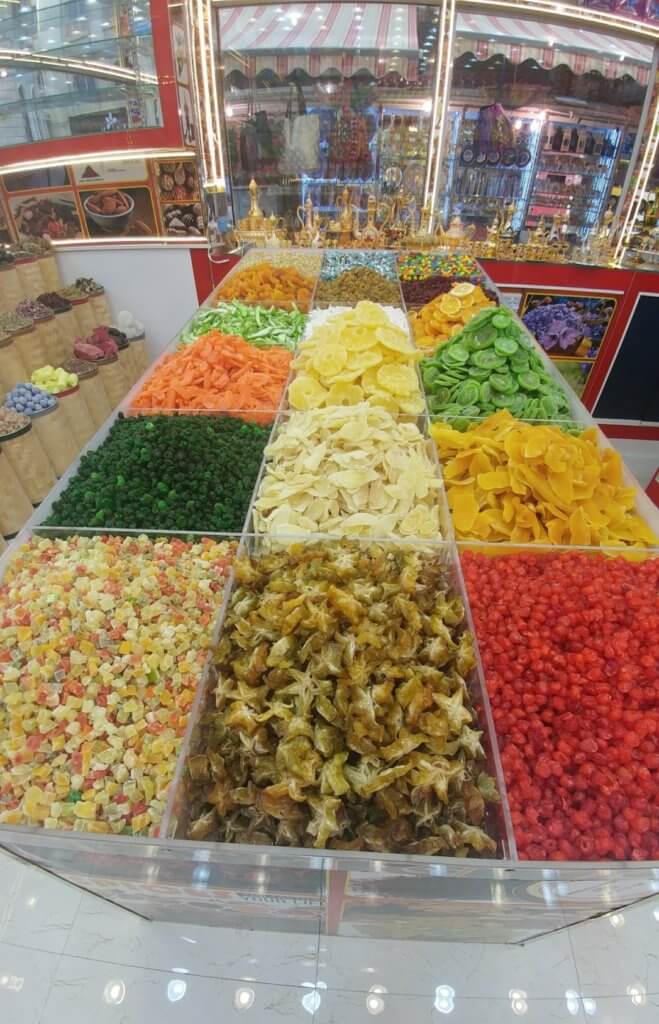
Perfume Souk
The Perfume Souk is a fragrant haven for those seeking exotic and traditional Arabian perfumes.
This vibrant market offers an extensive range of scents.
From pure essential oils and traditional oud (agarwood) to contemporary blends and custom fragrances.
The souk is characterized by its array of shops, each displaying beautifully crafted bottles filled with luxurious scents.
The most popular smells are Oudh and Bakhoor.
Vendors here are well-versed in the art of perfumery and often provide personalized fragrance blends tailored to individual preferences.

In addition to perfumes, the souk also features incense, bukhoor (scented bricks or chips), and attar (concentrated perfume oil).
Shopping at the Perfume Souk is a sensory journey, where you can discover the rich olfactory traditions of the Middle East.
As well as finding unique scents that capture the essence of Dubai.
Personally, I find their perfumes a bit too heavy for me.
However, it’s definitely interesting to sniff smells that you cannot find anywhere else.
Also, there are shops where you can make your own perfume based on your skin type, preferences, and personality.
If you know someone who loves heavier perfumes, this will be a perfect gift for them.
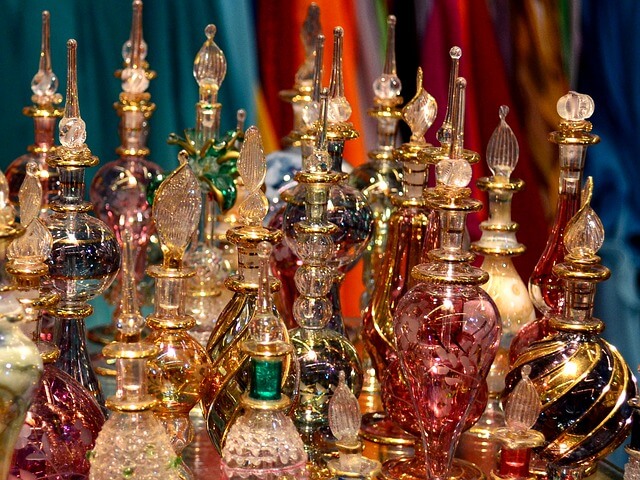
Textile Souk
The Textile Souk in Dubai is located in the historic Bur Dubai district (back where Al Fahidi is) near Dubai Creek.
It is a vibrant market known for its colorful and diverse selection of fabrics.
This bustling bazaar offers an array of textiles, from luxurious silks and fine cottons to intricate brocades and embroidered fabrics.
Fabrics to look for are cashmere, silk, cotton, etc. You can also find all sorts of buttons, stones, sequins, and so on.

Strolling through the souk, visitors can explore numerous stalls and shops. Brimming with rolls of fabric, ready-made garments, pashminas, and traditional attire such as abayas and kaftans.
Shoppers can find materials for custom outfits, home decor, and unique souvenirs.
Also, the market provides tailoring services, allowing customers to have bespoke garments crafted to their specifications.
With its lively atmosphere and rich selection, the Textile Souk offers a captivating glimpse into Dubai’s vibrant textile industry.
👉 If you prefer to do a guided tour that includes the souks and abra ride, check out this one: Old Town, Souks, Street Food, Guided Tour & Abra Ride
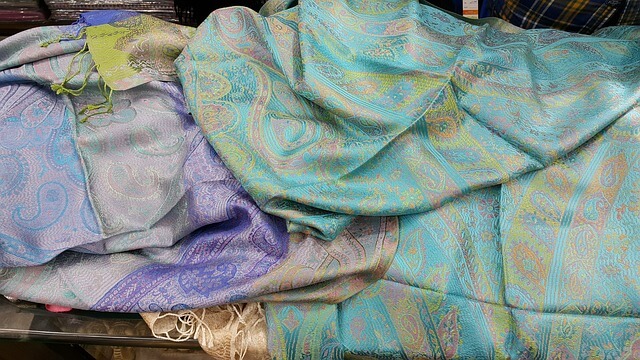
🦄 Related Abu Dhabi blog posts:
Is Abu Dhabi Worth Visiting? Things To Do & Reasons To Visit
Where To Stay In Abu Dhabi: 15 Best Hotels
Abu Dhabi: Qasr Al Watan, Emirates Palace & Observation Deck At 300
Abu Dhabi: Sheikh Zayed Mosque, Louvre & Heritage Village
Is Abu Dhabi In Dubai? Where Is Abu Dhabi?
Is Abu Dhabi Safe To Visit?
Conclusion: Old Dubai: Al Fahidi, Dubai Creek & The Souks In Deira
Exploring Al Fahidi, Dubai Creek, and the souks in Deira offers a fascinating journey through the heart of Old Dubai.
Al Fahidi Historical Neighborhood enchants visitors with its traditional architecture and rich cultural heritage.
While Dubai Creek serves as a lifeline that has nurtured the city’s growth and prosperity.
The bustling souks of Deira, including the Gold, Spice, and Perfume Souks, present a sensory overload of gold, aromatic spices, and exotic fragrances.
These iconic sites collectively provide a unique blend of history, culture, and commerce, showcasing the timeless allure of Dubai’s past.
